We are developing the social individualist meta-context for the future. From the very serious to the extremely frivolous... lets see what is on the mind of the Samizdata people.
Samizdata, derived from Samizdat /n. - a system of clandestine publication of banned literature in the USSR [Russ.,= self-publishing house]
|
Given that the papers are full of the most appalling socialist commentators sharpening their knives to butcher Britain’s remaining economic freedoms, when ‘right-wing’ (in their terms, God help us) Tony Blair leaves office, it is nice to be able to point out a ray of sunshine.
I like Nick Cohen. He is often wrong, but he does have the sense to follow his own mind rather than retailing the received wisdom . And he is intellectually honest and self-aware, which is more than can be said for most commentators on the left. This is an impressive example:
Too many on the liberal-left, including me, don’t feel in our bones that it is as wrong for the state to take billions of pounds from taxpayers and waste them on, say, the fatally overambitious National Health Service IT project as it is for the owners of Farepak to take the Christmas savings of thousands of poor families and throw them away.
Leave aside for the moment that no one was compelled to take the appalling bargain offered by Farepak in the first place, and that no one, including the same poor families, has an option about the taxes going to the mad NPfIT or the destruction of their privacy that it entails. Leave aside that, even if one counts as robbery in the same way as the other, the NPfIT is more than 120 times as bad. (Though one couldn’t pass that topic without noting Gordon Brown took out of the nation’s pension funds in one early budget, what it would have taken 300 Robert Maxwells to steal.)
Cohen has recognised (1) that there is something not quite right about the disproportionate outrage lavished by the left on the Farepak disaster, when government spending takes money from people who need it and gives them nothing; and (2) that some other people do not share the reflex. He offers the insight as a matter of electoral strategy for Labour, so insight (1) may be a bit weak. But it looks to me like progress. Cohen can not quite see what is wrong with his viewpoint clearly enough to shift his ingrained value-judgements, but he can see that it might be wrong.
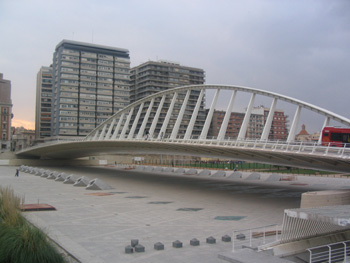
Valencia, Spain. January 2006
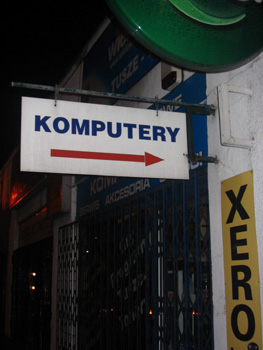
Warsaw, Poland. February 2006

Lamego, Portugal. March 2006

Shanghai, China. March 2006

Belfast, Northern Ireland. April 2006
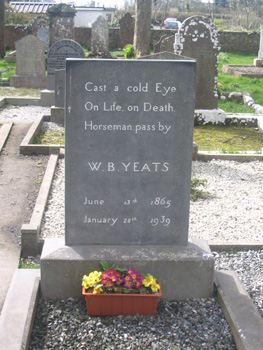
Sligo, Ireland. April 2006

Gold Coast, Australia. May 2006

Singapore, May 2006
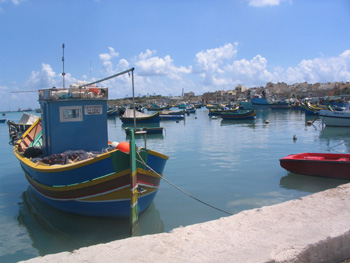
Marsaxlokk, Malta. June 2006

Meringen, Switzerland. June 2006

Dublin, Ireland. July 2006
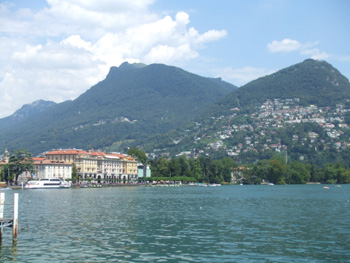
Lugano, Switzerland. August 2006
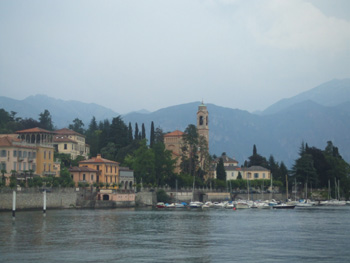
Lake Como, Italy. August 2006

Tallinn, Estonia. August 2006

Brussels, Belgium. September 2006
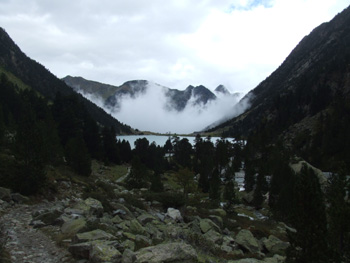
Cauterets, France. September 2006

Porto, Portugal. October 2006

Antwerp, Belgium. November 2006

Rotterdam, Netherlands. November 2006
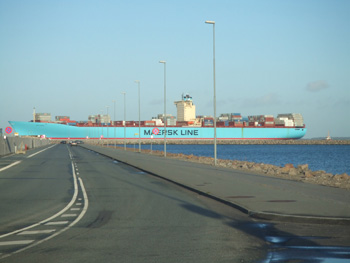
Aarhus, Denmark. November 2006

Prague, Czech Republic. November 2006

Barcelona, Spain. December 2006

Seoul, South Korea. December 2006

Panmunjom, Demilitarized Zone. December 2006

Melbourne, Australia. December 2006
To my complete lack of surprise, the latest inquest into Princess Diana’s death in 1997 is expected to state that she died because her chauffeur was drunk and lost control of the car whilst evading paparazzi. Sad but it happens all the time.
Why is it that people have such need to concoct weird conspiracy theories to explain so many events when recourse to good ol’ William of Ockham usually provides a far simpler explanation for why things happen? In particular, government conspiracies are either obvious (revealed by ineptitude or crassness) or non-existent due to the extraordinary difficulty of any group of more than three people have in keeping anything secret for more than a short period of time. It is not that conspiracies do not happen, it is just that they cannot stay secret for very long.
Other people will debate whether Augusto Pinochet, who died yesterday, was a wicked man who led a regime that killed three thousand people, or whether he should have killed rather more than three thousand as his communists foes have never had much of a moral problem with killing their enemies. My own opinion is that one should never kill an unarmed enemy – no matter what he or she might have been planning to do.
In the interests of honesty I should note that was not my opinion at the time. Many other communists regarded the independent Marxist President Allende as too rash and it is worth noting he was never a member of the official Communist party of Chile. Indeed when I heard the story about a group of communists mostly from outside Chile had been building forces from all over Latin America and beyond, had been told that President was about to deliver a speech and that they should come (leaving their firearms behind) and, when they got to the place the speech was supposed to take place, they were greeted with 50 calibre machine guns – well I laughed. But I was a child when I heard that story and children tend to be cruel.
Everyone has different levels of being shocked. For example, Pinochet either did not care (or did not want to know) about torture and summary execution. But when he got to hear of a rape of a prisoner he went through the roof (I heard this story from the prisoner via a BBC radio interview years ago) – the ‘holy army’ of Chile, based on the army of pre World War I Prussia – with joining up to the officer corps at the age of 15 and a monk like existence to one’s early 20’s, must not behave like ‘Argentines’, the prisoner must be released – and whoever was responsible must be…
On the democracy issue: It is true that Allende got more votes than any other candidate for President in the 1970 election (he got about a third of the vote), but he had violated the Constitution so much since then that the Congress had voted to outlaw him. Of course Pinochet did not turn over power to the Congress – he dissolved it (whatever it thought of Allende, the Congress with its majority of socialists and Christian Democrats would not have favoured someone who had just killed a lot of people – that it a problem with picking up a gun and doing some killing, how do you put it down again and not get punished?). By the way it was not, as is often claimed, the “first military coup in the history of Chile” as there was the coup of 1924 (but perhaps that does not count, as it was a leftist coup). → Continue reading: Augusto Pinochet
Steve Edwards has administered a particularly welcome hatchet job on critical aspects of the ostensibly benevolent, world government-loving Bahá’í religion. Check the comments – the Bahá’í faithful have piled in.
A while back I had not read my email for a day or so and found several waiting in my ‘IN’ box. Two were from Perry. Oh no. What have I done now? In the halls of debate, I am not very house broken. Fearing a ‘please cease and desist’ is in store, I open one. To my startled surprise, Perry is offering me a byline and contributing privileges! Startled is an understatement. Apparently I am doing something that Perry actually wants to continue. But what?
I have one all encompassing principle. ‘Reality.’ This is a more complicated choice than it may first seem, but still an easy one..
There are very few guidelines for contributors to Samizdata. Basically, the content guidelines are simple. The key position statement is “liberty – good, big government – bad”. Surprisingly, this is the one I will need to be careful with. For it is possible within my principles, to hold a collectivist position that is both philosophically consistent and morally sound. But while I am acknowledging that a collectivist can be morally sound and philosophically consistent, I am also mustering my defences and preparing for a ‘debate’ that can only be resolved by physical contest. I have made my choice and there is no middle ground. → Continue reading: How did I get to this page?
After many months of work, travel and no play, I went to a cinema to see Pan’s Labyrinth. A friend of mine thought it was my kind of film and he was right – it is dark, surreal and based on a fairy tale. It is set against the backdrop of the aftermath of the Spanish civil war. The story blurs the distinction between fantasy and reality but only to those who are not familiar with the stark realism of fairy tales. I know on which side of reality I stand.
Visually, the film is reminiscent of Mirrormask, which by comparison is light-hearted and flippant. Almost everything about Pan’s Labyrinth is dreamlike – imagery, acting, music. Except the violence and pain. This is no Disney movie.
It is a stark reminder of brutality of situations in which the warped and the sadistic have the upper hand. There are no heroes or winners. Just those who manage to preserve a shred of humanity by escaping to an alternative reality and by finding courage to act against the overwhelming evil.
It is also a reminder of the deep-seated morality of fairy tales. Tasks, rules, forbidden ‘fruit’ with dire consequences that follow any mis-behaviour. Monsters can be released by seemingly trivial acts of misdemeanour and can only be bound again at enormous cost. So just like the real life.
cross-posted from Media Influencer
On Saturday I went to the annual conference of the Bruges Group – an organization that has moved from a critical attitude to the European Union to an understanding that the United Kingdom should get out of the of the E.U.
One of the speakers was Mr Booker of the Sunday Telegraph a man who has specialized in detailing the exact harm done to business after business (normally small business enterprises) by EU inspired regulations after the Single European Act of 1986 allowed E.U. directives to be applied to most areas of British life. Small damage at first (just a few people’s lives destroyed) but over the last two decades more and more enterprises (and the people who go with them) destroyed. Although, of course, much of the damage of the EU (such as the CAP and the CFP) go back to when we joined back in 1973.
I will not go into the mistakes of some British politicians (such as Mrs Thatcher) who were tricked by the EU people and their British supporters, or the actions of other British politicians (such as Sir Edward Heath or Lord Howe) who deliberately acted for this hostile power against their own country. Other than to say that I do not accept the Benedict Arnold defence – i.e. that brave service in war means that a man should still be considered a patriot if he later changes his coat.
I am more concerned with a minor matter here. As I heard Mr Booker’s speech I thought “it is a long time since I bought the Sunday Telegraph – I will buy it tomorrow”.
And so I did buy it – and was reminded why I do not buy it any more. → Continue reading: Why buy the Sunday Telegraph?
Tim Blair links to a critique of the ubiquitous Stern Report, written by Bjørn Lomborg. Perhaps his most damning (and least surprising) criticism of the Report is that it is “unrealistically pessimistic”, and considering its wholesale adoption by the Green lobby, I have no doubt that this is true. The article is well worth a read as an antidote to all the hand-wringing the Stern Report’s tabling has inspired. However, Lomborg’s rejoinder only receives two cheers from me.
Whilst Lomborg’s most famous publication – The Skeptical Environmentalist – was enormously refreshing, I found many of his remedies to the world’s problems uncomfortable. He really seems to believe that solving these crises is as simple as throwing a pre-determined mega-amount of cash at them – x billion dollars here will provide clean drinking water for those who currently have no access to it, x billion dollars there will defeat malaria. In this latest article of Lomborg’s, he ambitiously declares that all of the major problems of the poverty-stricken world can be solved by spending x billion dollars per year, claiming:
Spending just a fraction of this figure [$450 billion p.a. to cut carbon emissions, as recommended by Stern – JW] – $75 billion – the U.N. estimates that we could solve all the world’s major basic problems. We could give everyone clean drinking water, sanitation, basic health care and education right now.
Really? Who is going to disperse this cash, and how? Lomborg does not say, but such a project has the State’s fingerprints all over it. Where else could Lomborg expect to get this sort of sustained funding from? Only an entity with the coercive power to extract resources from countless others would be able to volunteer a sum like 75 billion dollars year in, year out. Are we talking about government – or a coalition of governments? Of course we are! Surely only governments (or an intergovernmental body like the U.N.) are trustworthy enough to distribute such a volume of resources fairly and efficiently. Only governments would utilise these resources in the single-minded purpose of lightening the burden of the world’s poor, unadulterated by the agenda of other forces. An organic, non-governmental response is simply not organised; not holistic enough. Consider how well large-scale state planning has served us this past century or so.
Not buying it?
Well, I think we can all agree that the record of government and the U.N. in the field of aid distribution and poverty alleviation is really quite something. So whilst Lomborg is a useful resource if one is hosing down the wilder claims of the Global Climate Change mullahs, his obvious faith in government action should remind all liberals that he is not one of us. His solutions to the world’s problems are ultimately as futile as those proposed by the environmental industry, although Mr Lomborg’s are admittedly rather less demanding on the wallets of long-suffering taxpayers.
Yesterday I went down to the library in my hometown of Kettering, Northamptonshire.
There was a big display with a lot of ‘politically correct’ language – all about ‘sustainable development’ and other such. But when I worked out what it was all about it turned out to be the council’s plan for the Kettering area.
Exactly how many new houses, business enterprises and jobs there were to be was laid out (a bit like Gosplan from the old Soviet Union). The fact that it is impossible for some ‘plan’ to calculate the ‘correct’ level of all these things (something that Ludwig Von Mises pointed out in 1920) was ignored.
Nor was the possibility that government (in this case local government) should not provide all the roads, drainage, and other such that such developments demand. Of course the only way to judge if someone really thinks that a development is viable is to see whether they are willing to pay for everything (roads, drainage… and the maintenance of such things) themselves – if they are not it is a con.
In short the old unholy alliance between private developers and government (i.e. taxpayer) subsidies…even the Soviets did not have that. All in contradiction to the promises that the town and county councillors got elected on (i.e. that they would oppose such ‘development’.
The level of ‘research’ and ‘knowledge’ that the council has is shown by the picture of the building they choose to illustrate their plans for the centre of Kettering (presently, years after the present administration came to power, the ‘one way’ and road blockage system is still driving customers to other towns and divides the town into two parts, north and south, that are virtually cut off from each other) – the picture was of a building, and not even a very good building, that is miles outside of the centre of Kettering in south Kettering (a few hundred yards from my home).
Almost needless to say the whole display included a lot of words about the ‘environment’ (the environment that the developments would be built on I suppose).
It is a rerun of the trash collection scam. Lots of different coloured waste bins and a collection (of one or more of the coloured bins) only once every two weeks, rather than every week for one bin – all in the name of the “environment” (although all the carefully separated, on the pain of punishment, trash is then mixed together again because the council has no way of disposing of it separately). The whole scam costs a fortune and is a health hazard due to trash rotting for two weeks in bins – or being spread about when they get knocked over.
If attacked on any of the above local councillors will just blame national or European Union regulations and they may well be right, but I suspect that it is not a matter of where the government plan comes from, it is a matter of it being a government plan that is the problem.
Meanwhile the councilors concern themselves with another project. After wasting large amounts of taxpayer’s money on (daft) changes to the Town Hall, they now plan to waste millions on building a new Town Hall, or whatever politically correct name they come up with for it, someone miles out of town…I suppose they want to hide somewhere isolated so that angry people can not find them or the local government officers.
I have not mentioned what political party controls Kettering town council and Northamptonshire county council – but it does not really matter. The ‘Chief Executive’ (what we used to call the Town Clerk) and his deputy chief executives and other senior local government officers control everything – and they do so on the basis of various local and national regulations and policies.
Local councilors cannot even oppose these people as any written or verbal counter attack could be seen as ‘bringing the council into disrepute’ by the Local Government Standards Board – this body has hit councilors in other places for daring to speak against the administrators.
This is what it is like living in a ‘planned society’ like Britain, people who have something to lose do not tend to speak out.
Overconfident?
Governments are happily increasing their power everywhere by stoking fear of terrorists. Why risk undermining that by spilling over into loony implausibility?
Terrorism is the “biggest threat to all European nations,” Home Secretary John Reid has said as he discusses ways to boost security with five EU ministers.
– BBC
Utter tripe. Terrorism does kill, indubitably. That embarrasses governments that pretend to be perfect protectors.
Ignoring government self-image, it might be a serious enough threat to some people in some European states, to be worth some European governments spending a lot of treasure tackling it; and it might even be serious enough to merit changing the law to cope with it. I doubt both those prescriptions, and the latter more than the former, as regular readers will know. But they could conceivably be true.
However, let us review the facts against Mr Reid’s stronger assertion:
- Terrorism is NOT a threat to any European nation. No European nation state, and no identifiable national group in Europe is in danger of loss to terrorism endangering its identity or existence.
- Terrorism is NOT a threat to any Europen state. There are a handful of states in the world whose existence is from time to time endangered by terrorism. None of them is currently in Europe. The only very obvious example is Iraq. Colombia, Nepal, and others have come close recently, but no EU country has been in that position since the Greek civil war.
- To individual people and certain groups more than others, terrorism may present a threat, it is true. But that is not true of all European nations. The majority of EU countries have had no terrorist incidents whatsoever in at least a decade.
- Even in the few countries with significant terrorism in recent years (which really means France, Italy, Spain, Germany and the UK, if you extend ‘recent years’ to cover the last 20 or 30, which is a pretty generous estimate of the contemporary for a political phenomenon), actual casualties have been small. Hospital infection, food poisoning, non-political crime, bad driving… each presents a bigger risk to any of us. Terrorism is plainly not the biggest threat faced by people anywhere in Europe.
Witless hyperbole is the stock-in-trade of dictatorships propagandising their presumed-credulous servitors, in order to buff up their self-image. (Read any government-endorsed press story from an African or Mddle Eastern bullydom.) Dictatorships cannot bear to be embarrassed, and are embarrassed by terrorists, because they can never concede anything is outside their control. But in liberal states that sort of pretension to deity is supposed to be mocked from office. Which is Britain? Or is the question, which is Europe?
I wrote two posts for Biased BBC about the BBC’s reporting of President Bush’s “admission” that there were parallels between the present situation and Iraq and the Tet Offensive. The BBC, of course, is neither the only nor by any means the worst offender among the media organisations that have seized on this.
Those who think that a clueless idiot can get and keep the office of President of the United States may well be good children or pleasant neighbours but there is no need to take anything they say about politics seriously. Whatever criticisms one might justly make of Bush, one thing he cannot be is a simpleton. For all that there is a kind of truth behind it: Bush is a simple man. As I wrote here, precisely because he is a child of privilege “in important respects his values are more normal than is normal in his milieu.” Poor guy. Of course he had thought about the similarities to the Tet Offensive. Like some prince letting slip that there might be something to this Copernican system in front of his less enlightened bishops, he just forgot for a moment to keep one of the taboos that it is safer to observe when so many of the intermediaries between him and the populace are either ignoramuses or hostile.
He forgot that so many of them rejoice that the American media managed to turn that offensive, which General Giap viewed as a failure, into “proof” that the war could not be won. He forgot that so many of them view the conquest of Vietnam by a regime so detested by its own people that thousands of Boat People preferred the mercies of the open sea to enduring it any longer, and the deliverance of Cambodia into the hands of the democidal Khmer Rouge, to be their finest hour.
You know, thinking about it, his moment of forgetfulness might make a few people remember these things. It may not do him such harm after all.
|
Who Are We? The Samizdata people are a bunch of sinister and heavily armed globalist illuminati who seek to infect the entire world with the values of personal liberty and several property. Amongst our many crimes is a sense of humour and the intermittent use of British spelling.
We are also a varied group made up of social individualists, classical liberals, whigs, libertarians, extropians, futurists, ‘Porcupines’, Karl Popper fetishists, recovering neo-conservatives, crazed Ayn Rand worshipers, over-caffeinated Virginia Postrel devotees, witty Frédéric Bastiat wannabes, cypherpunks, minarchists, kritarchists and wild-eyed anarcho-capitalists from Britain, North America, Australia and Europe.
|




























